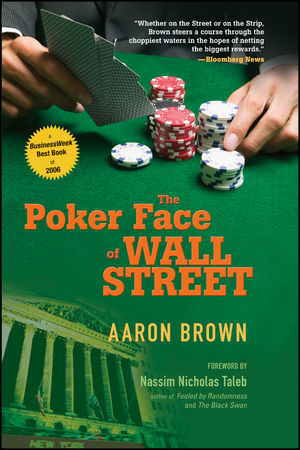To answer this question Aaron Brown wrote a book. With a foreword by Nassim Taleb, if you don't know who is Aaron Brown. Here is theIn Taleb's words:
The revelation was that poker differs greatly from the random walk-hence, one could learn from it; furthermore, it may be the sole venue for us to learn about randomness. How? Simply, it has other hidden higher layers of uncertainty-many of them. It has suckers, people who invite you to take advantage of them. It also has people for whom you are the sucker (of course, without your being aware of it). You are not flipping a coin and moving left or right. You are not betting against a large machine like a roulette wheel. You are not engaging in a blind draw. You are playing against other humans. You cannot easily control their maximum bet. Your betting policy matters far more than the probability of getting a given card. You can bluff your way, confuse other players, win in spite of a bad hand, or lose in spite of an unlikely good one. Not least, bets can escalate.
The above could be said about trading link...
P.SHere is the link.
Aaron Brown used to be an executive director at Morgan Stanley and a serious lifelong poker player who has played with Wall Street tycoons and world champion poker pros.

